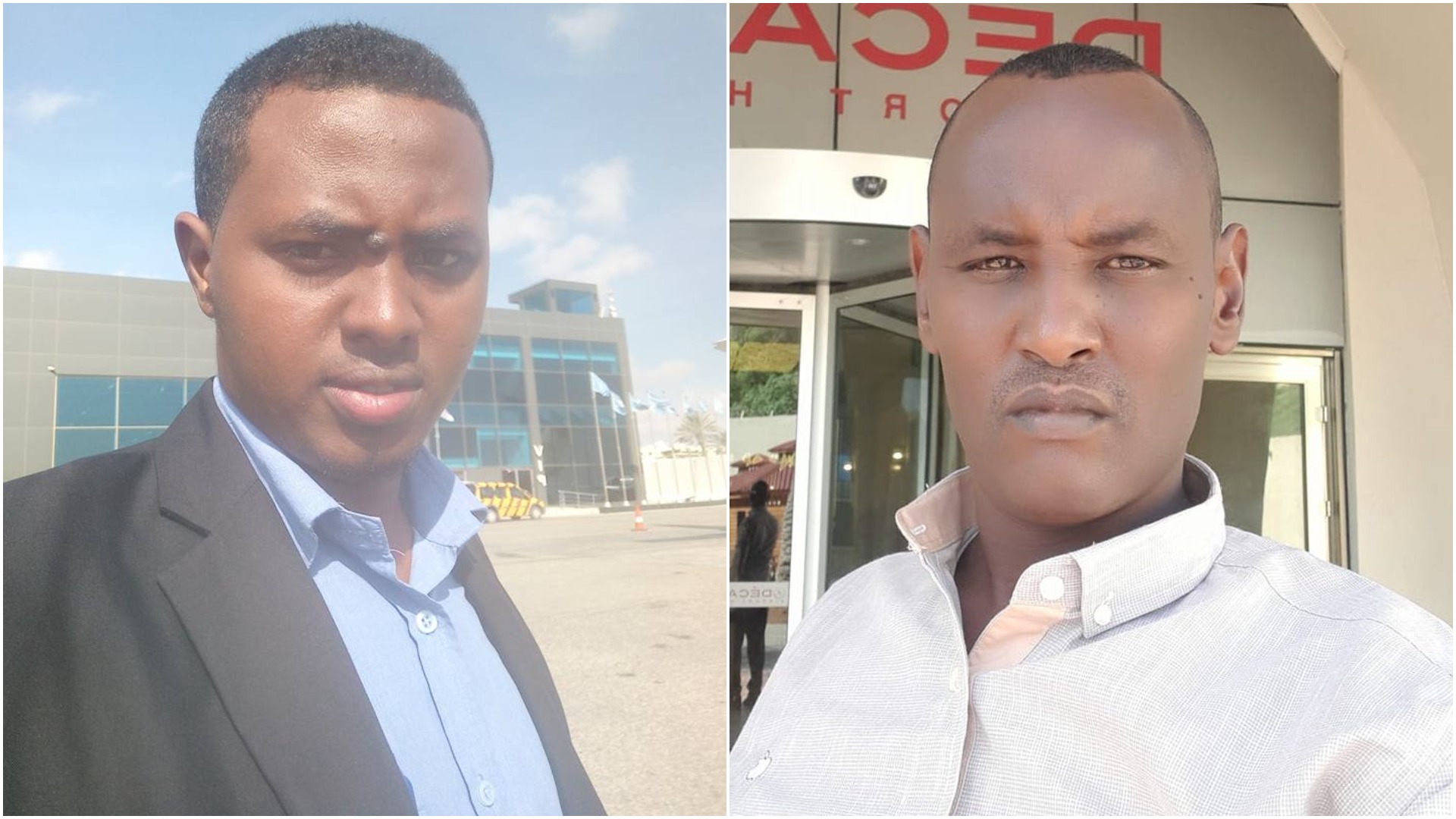
No where to run: Journalists in Jowhar face new threats from state officials
|
16 November 2021 22:16

MOGADISHU (HORN OBSERVER) - Journalists from marginalised Bantu community in Middle Shabelle are facing new threats as they express their views against brutality committed by Hirshabelle State security forces, journalists and union officials said.
The Bantu journalists said they were ethnically profiled and targeted by government officials. The pressure has now increased after they spoke out against police harassment during journalists training conducted by Somali Journalists Syndicate.
"Whenever we express our views, they call us and threaten us with death. They said to us that they will deport us and our families from the city,” said one female journalist in Jowhar.
Mohamed Hassan Kulmiye, the president’s security adviser and Abdikarin Omar (aka Aaloos), an intelligence officer posted at the state-owned propaganda television outlet, have been named as the key perpetrators, according to Abdalle Ahmed Mumin, the secretary general of Somali Journalists Syndicate (SJS), who has been independently documenting press freedom violations in Hirshabelle.
"Since September this year, these two officers were on the forefront of the attacks and threats targeting specific journalists. At least one TV journalist was banned from operating while others fled Jowhar for fear of their safety,” said Mr. Mumin.
"We are, however, particularly concerned by the new threats targeting local journalists in Jowhar because of expressing their views and speaking up against human rights abuses committed by powerful men in the system,’ adds Mr. Mumin.
The two named officers are on government payroll through a donor funded program which seeks to capacitate the weak regional state.
"There is no accountability for the abuses committed by the state officials and members of the security forces,” says member of parliament Mohamed Omar who described an incident in 2019 in which officials at the office of the Hirshabelle president grabbed a farmland near the state house after forcibly removing the owner who is a Bantu man.
"Culture of impunity thrives,” the lawmaker adds.
Following its report on that incident, the City FM, a radio station owned and run by Bantu community, was raided, its journalists detained and its equipment confiscated by the police, according to the documentation of the Committee to Protect Journalists (CPJ).
"The raid stemmed from [City FM journalist] Abdishakur’s reporting alleging that the government in Hirshabelle had illegally confiscated land from locals,” wrote CPJ at the time of the incident.
The CPJ’s report in December 2019 again named Mr. Kulmiye who then acted as the director general of Hirshabelle Ministry of Information.
Citing human rights abuses and harassment against members of the civil society in Hirshabelle, the Independent Anti-Corruption Commission (IACC) of the Federal Government of Somalia last week wrote to members of the international community seeking responses on the named officials: Mr. Kulmiye and Mr. Aaloos.
"IACC has received complaints of bribery solicitation and corruption involving various UNDP-supported projects including the regional advisers for various FMSs institutions. IACC notes with concern that some of these officials in our radar are still receiving salaries/stipends either paid by UNDP or the European Union,” IACC query to the international community read in part.
The Bantu community in Middle and Lower Shabelle had suffered particularly from armed factions which fought to control farmland and urban areas in the south, systematically looting and abusing civilians.
Like other minorities, Bantu people face renewed discrimination in IDP camps, with numerous cases of rape of Bantu women, who are not protected by traditional clan structure in the camps, according to reports on minority groups' rights.
They were also often denied famine assistance by clans and consequently resulting thousands of Bantu citizens either internally displaced or fled the country to the neighbouring Kenya.
Leave a comment
- Popular
- Rated
- Commented
04/11/2021 - 11:05:02
28/05/2024 - 15:44:10
02/12/2021 - 11:34:53
01/03/2021 - 09:00:37
Opinions
02/04/2025 - 18:34:53
27/02/2025 - 20:18:23
Politics
17/04/2025 - 01:58:17
13/04/2025 - 10:59:05
Terror Watch
26/04/2025 - 03:43:22
24/04/2025 - 13:30:44
24/04/2025 - 13:07:46
Press Releases
28/04/2025 - 18:24:22
 0
0 




































No where to run: Journalists in Jowhar face new threats from state officials
MOGADISHU (HORN OBSERVER) - Journalists from marginalised Bantu community in Middle Shabelle are facing new threats as they express their views against brutality committed by Hirshabelle State security forces, journalists and union officials said.